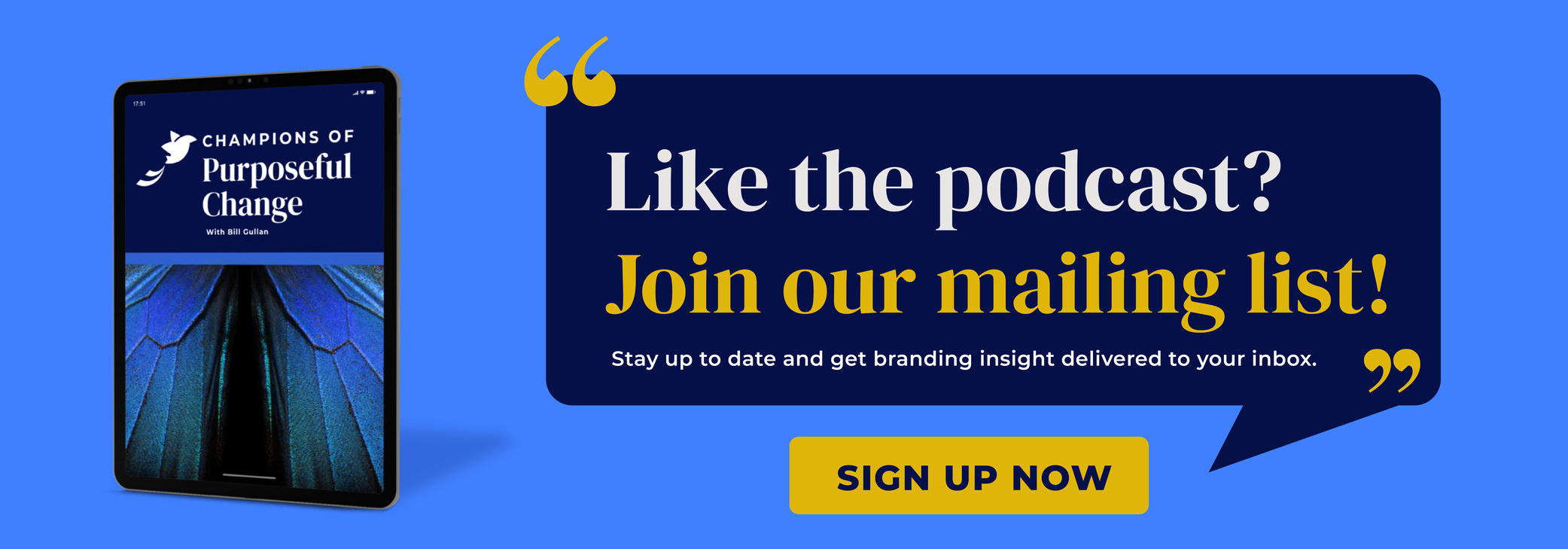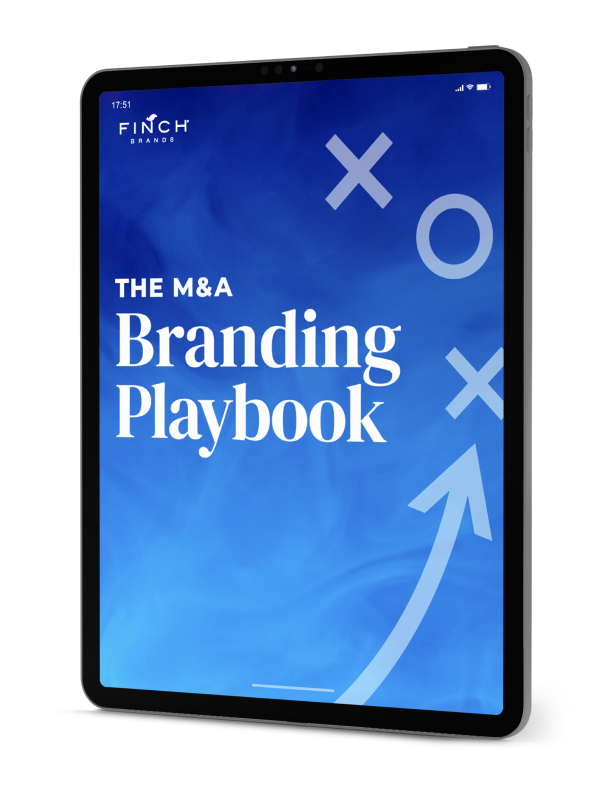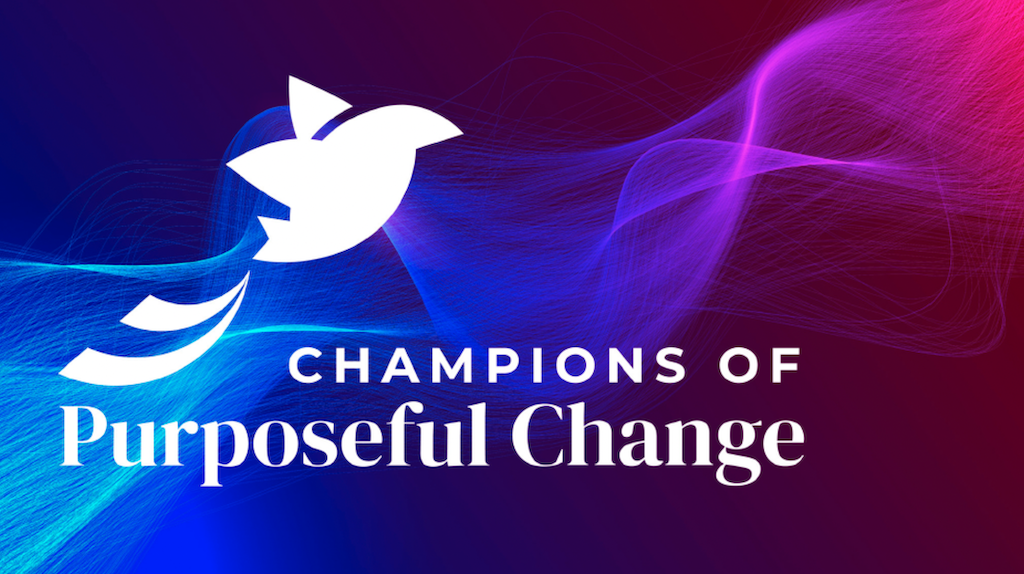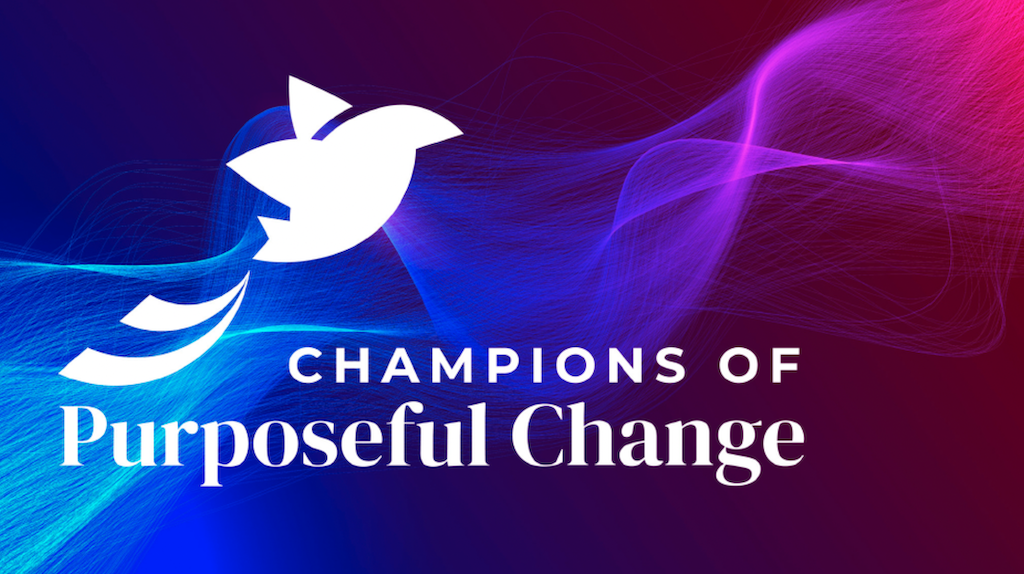Nutrisystem EVP & CMO, Keira Krausz: Reinvigorating a Business
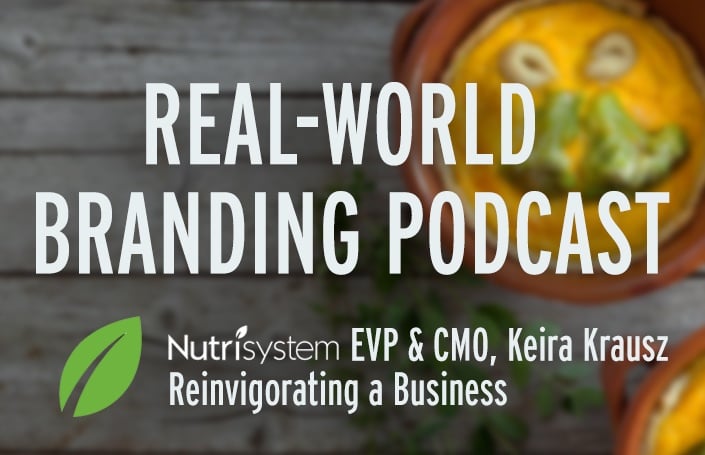
Summary:
When Keira Krausz became Chief Marketing Officer of Nutrisystem in 2013, the company was in a ’turnaround’ situation. Fast forward to today—Keira and her marketing team have contributed to an incredible rebirth, including seven straight quarters of growth. In this episode of Real-World Branding, Keira walks us through the twists and turns of her career and the story behind Nutrisystem’s recent success and its future plans. If you enjoy our podcast, please subscribe and leave us a review!
Transcription
Bill Gullan: Greetings one and this is Real-World Branding. I’m Bill Gullan, President of Finch Brands, a premiere boutique brand agency. Thank you joining us. Today we will be spending some time with Chief Marketing Officer of Nutrisystem, Keira Krausz.
Keira and the CEO of Nutrisystem, Dawn Zier, have both been with the company for about two years and in that time they and the terrific team including both long-term team members and comparatively new arrivals, have authored a tremendous turnaround story. We conducted this interview prior to the most recent earnings release for Nutrisystem and embargoed it until after. Yet again, last Friday a tremendous quarterly performance. I believe its seven quarters of significant growth and beating estimates, the stock price certainly reflects that.
We get into a lot of different elements of Keira’s background, the unique rhythms of the business that Nutrisystem is in, some of the things they’ve done to be relevant to their consumer and expand their consumer base and bring their unique approach to weight loss and health into the world and in the marketplace.
Before we go to that, a couple things if you like what you’re hearing, please subscribe to Real-World Branding. Every two weeks or so it will just pop right into your app there and you will have another interview with a really interesting brand and business builder.
We love of course, if we’ve earned the right to receive a high rating in the store, whatever store you’re using and we would certainly very much love and appreciate feedback in what we’re doing here. Questions, suggestions for future guests, the two best ways to do that perhaps would be on Twitter, either @FinchBrands, or directly to me @BillGullan on Twitter. Whereas sometimes I vent my spleen a little bit about topics that might be on my mind, let’s let Keira’s words stand alone. It’s a terrific interview, I hope you enjoy and thanks again for joining us.
Bill: We’re here with Keira Krausz, CMO of Nutrisystem. Keira thank you for joining us on Real-World Branding.
Keira: You’re welcome, my pleasure.
Bill: All right, so to start could you take us through a bit of your background? The twists and turns that have led you here and some of the notable things from your career.
Keira: How I meandered to this point in time, okay.
Bill: It was more linear than that maybe but …
Keira: Or maybe not but that’s okay. I don’t recommend being totally linear, but there are some common themes I will say. The first is that most of my career I’ve been in direct marketing. I started my career way back when in continuity and subscription models for MacMillan. Then I have many great years, too many to name at Reader’s Digest, marketing everything from books and music, to financial services and membership clubs.
Even though I worked at a publishing company, per se, I was used to selling all numbers of categories. Then, what I found is the direct marketing fundamentals. Stuff like speaking directly, selling the benefits, offering something of special value, driving for immediate action and urgent action. Those are very highly transferable skills, so that’s a lucky thing that I had those skills from Readers Digest.
The second thing is that over the years, whether I liked it or not, I started getting asked, or sometimes told, to come into a business or a division to assess the situation. It was usually not as good as I would have liked and I had to fix it fast, to return that particular division or business to growth. I developed turnaround skills. It wasn’t really a plan, that’s the meandering part. That became sort of a necessity. That’s lucky as it has served me well. At the beginning of time at Nutrisystem. We’re not in turnaround at the moment, but when I first got here we were.
Third, after those businesses were healthy I had to pivot from a turnaround mentality and shift to a growth mentality and that’s like what we’re doing here [at Nutrisystem]. That all made sense, all those things made sense when I came to Nutrisystem. That’s how I sort of landed my way here.
Bill: Reader’s Digest, those who haven’t followed it at the corporate level, may think of it as something that they found at their grandparents’ house or whatever, but their were a lot of businesses that it was involved in.
Keira: Sure I mean Reader’s Digest, at one time at least, was basically one of the largest database marketing companies in the country and, in fact, the world. Very global business. Yes, the brand of the company is also the brand of it’s flagship magazine. For most of it’s history the business model was to attract as many people as we could with that magazine. It was at 20 million, I think, at one time. Then with that database of names, learn as much as we could about those customers by asking them questions and making different offers. Then actually launching different businesses to that list, so it was very profitable.
Now database marketing and using data, big data, these are all kind of buzzwords in the marketing industry. Way back when in the 60s, 1960s, Reader’s Digest was actually already doing that, so that’s cool.
Bill: Right, absolutely. You did undergrad at Cornell?
Keira: I did.
Bill: You’re second consecutive Big Red, are they the Big Red? I think they are.
Keira: I will confess they are Big Red, but I have to confess I would not be the one to ask because I’m not exactly a sports person.
Bill: Fair enough. Second consecutive guest from Cornell. Where ae you from?
Keira: I’m originally from Illinois. From the flat-lands of the Midwest. My dad’s family is Chicago born and bred so if you ask me a question about the Black Hawks or the sad Cubs I might be able to answer a few things but not too much about Big Red.
Bill: We’ll see how the Cubs improve.
Keira: I’m hoping.
Bill: Yeah, a lot of optimism there. You mentioned the turnaround condition. When you and CEO Dawn Zier came, I think, a little over 2 years ago at Nutrisystem, it was labeled appropriately as a turnaround. This is a company with incredible ups and downs. Somebody should write a book about Nutrisystem, all the ups and downs.
Keira: That could be you.
Bill: It could be me. I’m not sure anyone would read it but it would be fun to write.
Keira: I’ll read it.
Bill: Thank you Keira. So you and Dawn come here a little over 2 years ago and since then there has been a tremendous resurgence and obviously Wall Street, I think, is registering their pleasure with it. Given this upswing and these really strong results what do you attribute that to? In terms of what you’ve been doing?
Keira: First of all the question makes it sound like we rode in on white horses and in fact that could be the farthest from the truth. We did come in. We didn’t have white horses. It’s not a 2 man band. I think that’s the most important thing, we don’t necessarily believe in grandiose, charismatic, one person saves the day. We have a great team that’s probably the first and the foremost thing. It’s a team, it’s a combination of the people who were here. We have people who’ve been here for 25 plus years.
You mentioned that Nutrisystem has a fascinating and long history. Some of those people have lived that history and are really amazing at knowing the weight loss business in and out and forever – having a much longer term view than somebody who just walked in the door. We also brought in people who were functional specialists or really champions at some specific skill. Brought in a new creative director, a new CFO, etc. it’s a combination of people who were here and new ones. I have to say that of anywhere I’ve ever worked we really have trust in each other. We have passion. We definitely work hard and we’re nice, on most days.
Bill: So it’s fun for both of you?
Keira: It’s a team that has a diversity of skillsets and on any given day somebody … I mean you’ve spent time with us in our business.
Bill: Sure.
Keira: We have strong opinions. I guess we differ constructively, hopefully, mainly. There are some basics and the basics are essentially we exist to serve and help customers lose weight. They’re first, so as you know we try to understand what those customers need and want all the time. The second fundamental is that we try to be as fact based as possible. Dawn Zier, the CEO, has a saying. I don’t think she invented the saying but she always says, ‘I will always listen to facts, but if it’s a matter of opinion, I’ll just use my own, thanks.’ That kind of encourages us to use facts to make most of our decisions and to guide our constructive debates.
We execute with excellence. It’s not that hard to come up with a strategy. Many failed companies, and successful companies, have come up with strategies and decks to say where they’re going. You need a strategy, but the thing is, you have to actually execute on that strategy. I think one thing that we’re good at is that we focus and then we do what we say we’re going to do and then we do more later.
We’re not all over the place. Just that focus and we really try to just get the basics right. Then, we definitely are direct marketers. I know we’re going to talk a little bit about that. We definitely focus on the direct marketing fundamentals.
Then we do have a great brand. A brand that proved to be much stronger than we thought. That could travel to new channels and really carry. Just the brand alone communicates benefits to customers which is a very helpful thing.
Bill: Right, indeed. In this sort of upswing, there certainly has been, and it is palpable, a focus on execution and delivering the fundamentals of the branding business anew. With new energy or asserted energy. There’s also then, as you mentioned, some channel expansion. There’s been some product and concept expansion.
To the degree that you are able, or want to, to say a word about some of the things that have come to market in the past couple years. The retail business for example. That’s been augmented, it seems, considerably. Some a la carte products and services have been offered. Is it a combination of back to basic and highly energetic execution-focused leadership, plus some of these new strategies that you all put together?
Keira: Definitely, definitely. I mean, the first year was more about fixing things. Fixing things fast, true turnaround stuff and returning back to basics. At that time we planted the seeds for retail. Retail is now a sizable and significant part of the business, and growing quickly. It’s really helped us bring the brand and products to retailers. Walmart, Sam’s Club, Costco, and meet people that we were not going to meet otherwise.
We are able to vary the products and the pricing of those products so that we have a way of introducing ourselves to customers that we just weren’t meeting. I think that’s really valuable. Some of them come to our direct business, most of them will not. It’s a different relationship, but we’re happy with that expansion. So yes, now we’re growing retail and we’re focused on digital expansion, social marketing expansion. It’s a lot of channel expansion for the businesses that we’re in, and then as you look too, we’re also trying to expand by moving into new businesses or new business segments within weight loss.
Bill: Right. We talked about retail but as we know, as you said earlier, the core of this business is the direct business. A lot in your background, as you noted, has been about direct response and creating direct relationships with consumers. With a traditional marketing model that has been heavy on this PR approach, what would you say the role is? You mentioned the strength of the brand. PR is about tactics and transactions but also relationships and continuity. How would those two things live together to help really strengthen the company?
Keira: A lot of people will say, ‘are you a brand marketer or a direct marketer,’ as if they’re two sides of a spectrum and they have nothing to do with each other. That’s really not how we see it. Definitely brand and direct marketing are friends, not total strangers.
The brand helps people chose us rather than another option. It keeps us top of mind. We have attribution models that measure how many of our orders we can attribute to each dollar that we spend in each channel. We know that there’s some that we can’t attribute. That is because that’s from the brand. That’s the equity that we have in the brand.
It also helps us set our voice and have some consistency across all of our communications with our customers. Which then leads to, hopefully, building a relationship with customers so that we are not all burn and churn and try to get another batch of new customers in next year, but we have an ongoing relationship. I mean weight loss is a thing that hopefully when you succeed with us and you won’t need to be on a full program forever. As anybody who’s ever lost weight knows you are going to gain a few pounds back come Christmas time. Or Halloween, or what have you. We hope that our customers now will remember that they had a positive experience with us in all ways. Then when it comes time that they might just need a tune up that they come back to us. That’s what we’re going for. I think the brand helps do that.
Bill: Right well the retail business, in particular, to jump start it, is a great place for someone that has reached the point that they really want to do some things. p>
Keira: That’s right and when they see the brand, you know, when they’re walking down the isle and they see Nutrisystem versus the other brands on the shelf I think one reason that we’re able to grow quickly was because they knew and trusted that brand. We didn’t have to explain a lot on a little box. They were willing to stop and pick up that box and take a chance with us and for that we’re grateful.
Bill: As the brand increases at retail and as the distribution model becomes increasingly diverse how, if at all, does that empower you and the marketing team to think a little bit differently about what the success factors are? For example, at retail versus at the direct business, you mentioned there is continuity in terms of how we execute and so the cultural touch stone is this continuity in terms of what the brand stands for, visual style, brand personality, everything else. You know, vast differences across channels verses some of the …
Keira: Right, the business model is completely different.
Bill: For a brand named Nutrisystem to be successful at retail in addition to relying on the things that it’s created over the many, many years, are there a couple of things that make this brand successful? Especially to stand out within a channel that it may not be traditionally focused on.
Keira: Well, you know, we spend many, many millions of dollars on the direct business on TV and while we’re trying to get you to call, or to more likely go online or your mobile phone and check us out. Even having all that advertising does support the retail business, basically telling our story millions and millions of times every day. That in itself does support the retail business. We are different from a traditional retail only brand in that they invest money in many channels that don’t inspire people to respond right there but drive to retail. Some of the things that we do have to be more mindful, we have to have great partnerships and relationships. We have to please those big retailers. It’s really all about understanding their world, innovating for their customers so we’ve done a lot of product innovation for the retail channel.
That we would not have done for the direct channel. It’s about understanding how their marketing requirements and promotional requirements work so it’s just really understanding that world and how it differs from ours. The other thing that we have to do, because we have a direct business, is we don’t want to just trade one for the other. We have to watch very carefully the product variety, product piecing, and product pricing makes sense across the channels. It doesn’t always happen.
We’re pragmatic before anything else, but we spent a lot of time thinking through how things relate across the channels and that they make sense. We try to remember that we might think of things as direct marketing and retail but customers don’t do that. Customers live in the world and so it’s got to make sense. If a product is priced much higher someplace else, it just doesn’t make sense to them and they’re going to go and find the best price for them.
We equally have to remember that we don’t live in a bubble. We’re not just competing with weight loss companies but we live in the world and they see all sorts of marketing messages and customer service standards and delivery standards from everywhere else. We have to keep in mind what’s going on in the consumers world not just in our world.
Bill: Right, and you mentioned gathering strength in areas like creative. Obviously for the retail business, presumably your packaging right?
Keira: Correct.
Bill: You’ve got to get some of the different cadence of how consumers make choices. The brand is progressing in a really positive way in those realms as well. You mentioned consumer needs and they live their one life, and that’s absolutely true. We know, just from looking around that there is a lot of talk, there’s always been, but there’s seemingly a progressive amount of talk amongst consumers in what’s considered about nutritional elements, about freshness and whatever that means.
Keira: That’s definitely true and with the growth of Whole Foods, we don’t necessarily see ourselves as taste setters. We are definitely oriented around what consumers want. We’re not trying to tell them what they want and we’re not trying to change their minds. That definitely is hard to do especially in direct marketing so we go with the flow.
Definitely, you know and I know, that we’re all changing. We look at labels much more. we expect clear labeling. If there’s a weird ingredient in there that we don’t understand because we’re not chemists, we would like to know what it’s doing there. People are looking to see how much sugar is in their food, what percentage of the food is whole grains, how healthy is it? On the other hand, there is a portion of the market that is very health conscious and very nutrition conscious and is willing to give up dessert because they are watching their sugar.
There’s a larger portion of the population right now who wants both. They want health and they want their usual traditional, if you will, American foods. We have to do a good job at doing both and that’s probably challenging. We serve people who like to eat.
We have to be careful not to be too cutting edge and yet very on trend. That’s basically what we seek to do. We have a food development team that everyday is trying to improve the taste, improve the variety, improve the health, improve the labeling, improve the packaging. They’re constantly busy. That’s what makes my job possible. If they don’t do that then I don’t really have anything to sell. We spend a lot of time on that.
Bill: Sure, as someone who’s been on the program before I can attest that it works and the food’s pretty good.
Keira: I paid him everybody.
Bill: Right. There now that I’ve said it. I think, I may be the consumer who loses 30 pounds every year and then gains it back.
Keira: We kind of like you.
Bill: Yeah, I may be good for continuity.
Keira: As long as you don’t go anywhere else.
Bill: Yeah, no. First of all, thank you, this has been terrific and as we wrap anything you can disclose about major priorities, future plans?
Keira: No, I could tell you but then I’ll have to kill you.
Bill: Some people would applaud that.
Keira: They’d hate me. No seriously though we have a number of things. I spoke about how we were in a really ‘fix it fast’ mode and now we’re in a growth mode so we have a number of initiatives to keep that going. Basically they’re centered around reaching new customers for our core offerings, our core business. That centers around channel expansion as particularly in SEO, content marketing, and social. Those are probably our three big focus areas. That doesn’t mean we neglect everything else and shrink that, I mean, it’s an ‘and’.
Then we really want to focus on improving the customer experience and getting to know the customer even better so that we are not a burn and churn business. That’s terrible. We want to make people happy so they’re motivated to stay with us a long time. Then, finally, we’re watching a bunch of new businesses to try to move us into other segments. You spoke about the move towards fresh food so now we have Simply Fresh, which we started in California and will be most likely expanding shortly. That’s a pure fresh business. Now, delivering fresh food is expensive and so that won’t be for everybody, though we wish it were. The economics won’t work for everybody so we’re also really focused on getting products for all sorts of occasions and needs. If you want more flexibility, don’t want to be on five meal occasions a day. You’d like to do your own thing for dinner or you want to do your own thing for weekends we can vary our offerings. To make them more or less flexible depending on what people need.
What we want to do is that which will allow us to offer things at different price points again so that we can attract more customers. Really figure out what different segments need and want and then go for it. That’s basically, I think, sumarizes it.
Bill: This is a company and a brand on the move.
Keira: Thank you, its been fun.
Bill: Keira I think you’ve obviously been one of the primary authors of a really amazing couple of years.
Keira: Thank you.
Bill: We can’t wait to continue to watch and see what happens.
Keira: Check back with us, knock on wood.
Bill: We will. Knock on wood. Formica, or whatever it is. Keira Krausz, Nutrisystem CMO thank you so much for being with us.
Keira: Thanks for listening.
Bill: So there you have it. Thanks to Keira Krausz for being a terrific guest. Nutrisystem is a fascinating business and in it’s several decades of history. Someone should write a book about this company. The twists and turns, peaks and valleys, changes in model, and it would be a book that would be a fascinating series of case studies about how businesses grow and prosper and why they decline. Now, we’re in a prosperous moment certainly with a really bright future for a terrific brand and management team. Thank you again to Keira for your insight and certainly for your time.
One thing that struck me was everyone’s talking about omni-channel, or multi-channel, brands today. Nutrisystem for at least the last little while has really been a direct response driven, telephone or internet brand, with historically one way to be a customer. Since Keira and Dawn have helmed the Nutrisystem brand and business, the explosion of the brand into retail, the many, many different touchpoints and opportunities have reinforced the traditional mold of how these types of products are bought and sold. They have also paved new ground because the consumer always wants things to be convenient and to be compelling, to be served up in the way that he or she finds most interesting and most in step with the way they live. Nutrisystem has been, to their credit, very responsive to the marketplace.
One other thing that was particularly interesting, I think, from my perspective was Keira’s response to how brand and direct response live together. The fact that they really are partners. We couldn’t agree more. It’s wonderful to hear that from a practitioner as Keira is of direct business’.
Terrific, thank you again Keira for your insight and input. As we sign off, again, a couple ways to support what we’re doing here at Real-World Branding. Please subscribe if you are so compelled to receive these types of interviews with brand and business builders at regular intervals. We would obviously love a rating if we’ve earned it of 5 starts, or 4 stars. Whatever you think is appropriate. Then for feedback, for questions, for suggested guests reach out to us on twitter. Either @billgullan, reach out to me or @FinchBrands. Signing off from the Cradle of Liberty have a great day and week.
